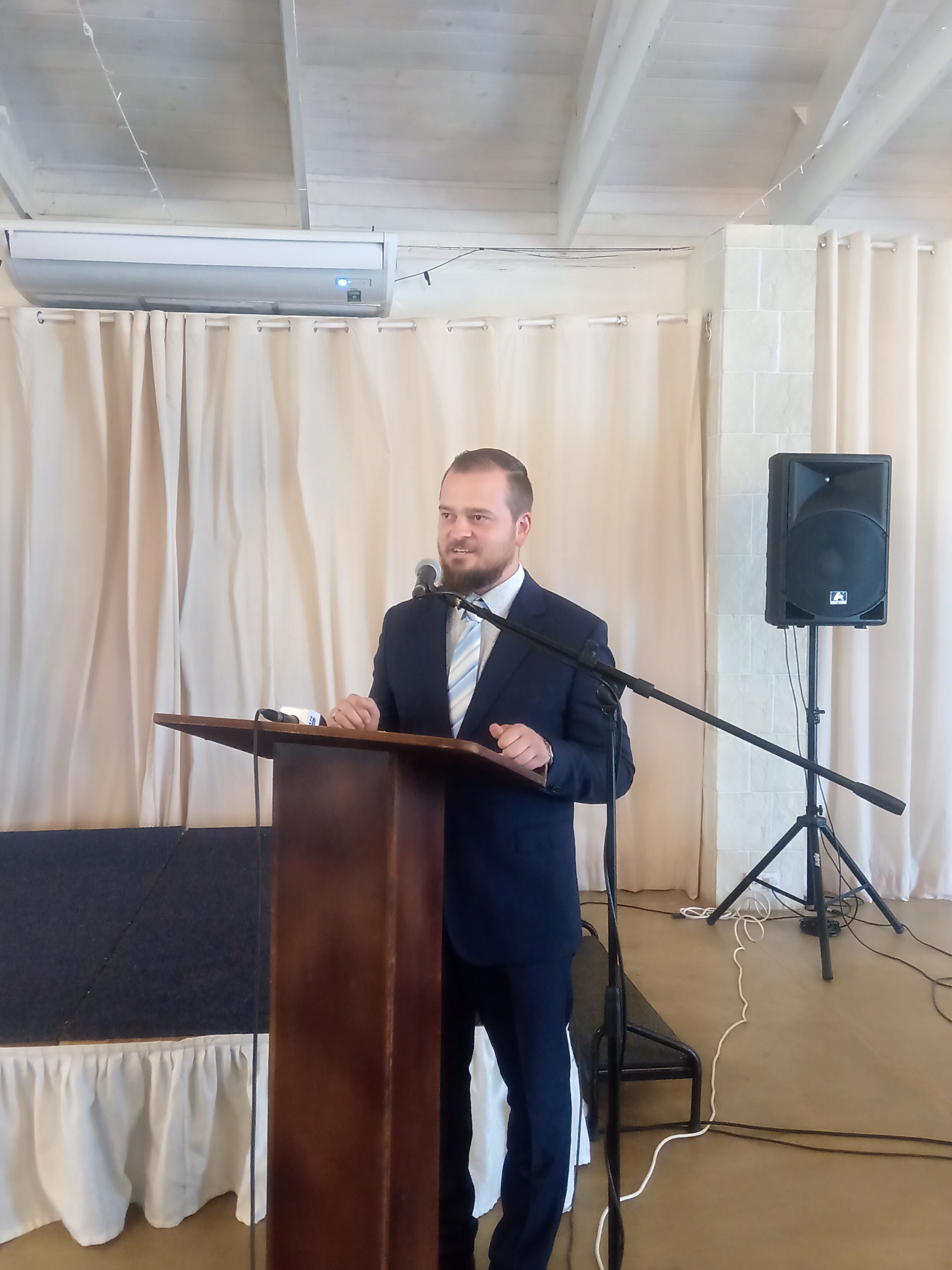The Deputy Minister of Lands, Agriculture, Water and Rural Resettlement, Mr Vangelis Haritatos has said that the agricultural sector is the most significant prime-mover of Zimbabwe’s Vision 2030.
He made the remarks at the two-day consultative workshop on the Enabling Business of Agriculture (EBA), pillar 1 of AGRINVEST Initiative that kicked off in Harare today.
This workshop is happening at a time when Zimbabwe has started on a new era in its development trajectory and the President has made his vision clear that Zimbabwe should be an Upper Middle Income Economy by 2030.
“If there is anything that is upper most in this strategic thrust of Government – it is to get agriculture moving again and at a fast pace to occupy its central role in the realisation of Vision 2030. Ladies and Gentlemen, there is no question that the agricultural sector is the most significant prime-mover of Zimbabwe’s Vision 2030. Agriculture is a major source of livelihood for over 67% of the population,” Haritatos said.
The Deputy Minister said it was ironic that with more abundant land, water resources and favourable climatic conditions to grow up to 23 crop and livestock enterprises, Zimbabwe remains food insecure and spends a substantial amount of foreign currency each year on imports of food and other essential commodities, while certain sections of the community languish in poverty, hunger and malnutrition.
He said the solution and most direct way of dealing with the crisis is in increasing agricultural production in a sustainable and environmentally friendly manner.
The Ministry of Agriculture has placed greater emphasis on enhancing agriculture production and productivity. To do this the Ministry, has now prioritised the re-building of key prime movers of agriculture – an enabling policy, security of tenure through issuance of 99 year leases, access to agriculture inputs, foreign investment to increase capital, technology, knowledge and skills transfer into agriculture related infrastructure and promotion of domestic agriculture economy.
Dr John Basera, the Permanent Secretary in the Ministry of Lands, Agriculture, Water and Rural Resettlement thanked the Food and Agriculture Organisation of the United Nations for providing funding for the AGRINVEST program which is meant to support the process of developing enabling measures aimed at stimulating private sector investment growth in the agricultural sector.
He said the main objective of the workshop is to analyse Zimbabwe’s scores for the indicators in the World Bank Enabling the Business of Agriculture Report 2019 which looked at indicators that measure the laws, regulations and bureaucratic processes that affect the Performance of the Agricultural sector, assessing whether governments make it easier or harder value chain actors to operate their businesses.
“The indicators provide a tangible measure of progress and identify regulatory obstacles to market integration and entrepreneurship in agriculture. A multi-disciplinary team of consultants have been involved in reviewing of the regulatory and policy measures that affect growth of investment in the agriculture sector in the country. All the indicators are indeed key touch points in the Agriculture Transformation jigsaw and ultimately for the attainment of vision 2030,” Dr Basera said.
Speaking at the same occasion, Berhanu Bedane, the Officer in Charge of the FAO Sub Regional Co-ordinator for Southern Africa commended the Government of Zimbabwe for its commitment to end poverty through its various national initiatives in the agriculture sector.
“This national objective of ending poverty is in line with FAO’s mandate to help eliminate hunger, food insecurity and malnutrition. This mutual goal explains the current robust partnership between the Government of Zimbabwe and FAO in various sector development initiatives.
“For those who remember, the Deputy Minister launched the AGRINVEST initiative in November 2019. I am glad to stand here today welcoming you to this stakeholder consultation meeting, a very important step towards the realisation of an enabling business environment within the agriculture sector in Zimbabwe. As you are aware, the business environment is an ecosystem that determines sector growth, an inhibiting business environment stifles private sector activity thus limiting innovation and perpetuating poverty,” Bedane said.
Through the cooperation, FAO is providing technical assistance to the Government of Zimbabwe. AGRINVEST aims to revamp the Zimbabwean agriculture sector through improving smallholder farmer inclusiveness, access to jobs, increasing agricultural product exports, improving trade balance, as well as enhancing food and nutrition security.
Given the growing complexities in the agro food systems, exacerbated by climate change and other challenges like growing food demand and declining productivity, Bedane said there is need to forge solid private sector partnerships. Zimbabwe requires a right framework to harness the great potential in private sector in delivering its national objectives,
According to FAO studies, it is anticipated that the wold population will reach 9.1 Billion by 2050, a 30% increase from the current status. In order to meet this growing global demand, annual cereal production is anticipated to rise from the current 2.1 billion tonnes to 3 billion tonnes. Serious investments to support the production system will be key in order to avoid food insecurity and malnutrition.
